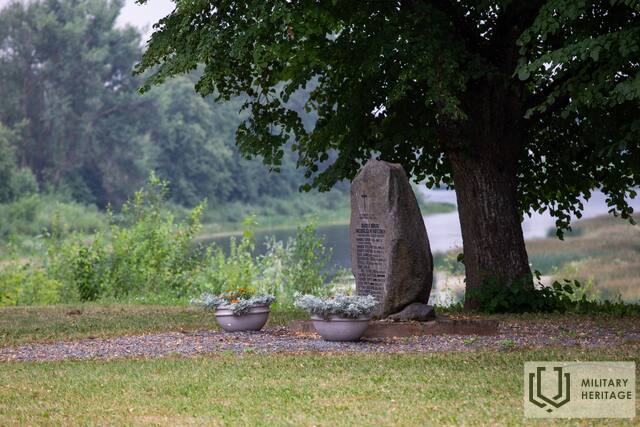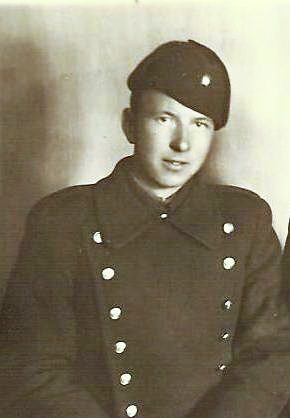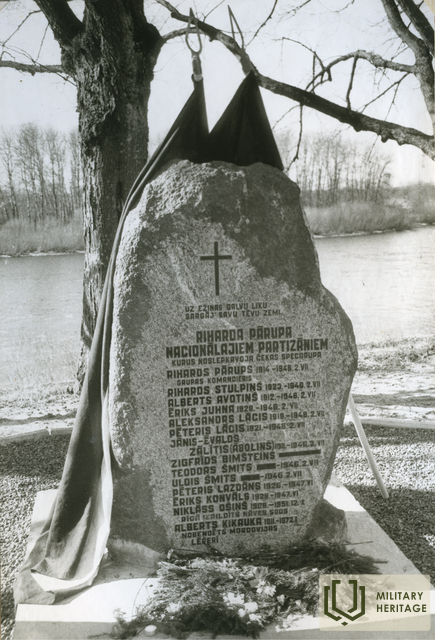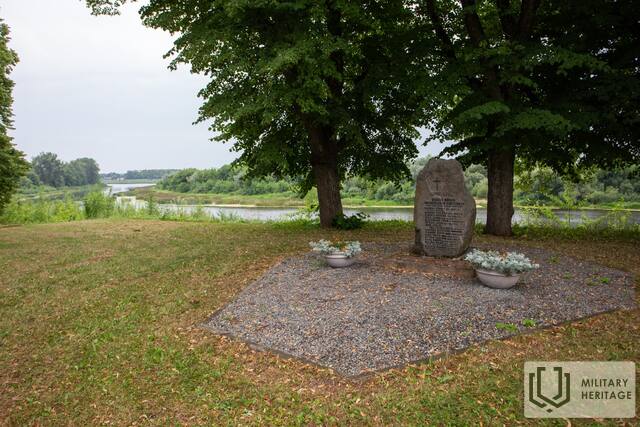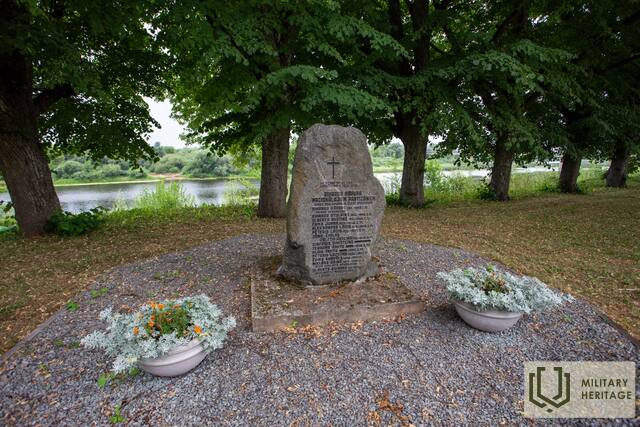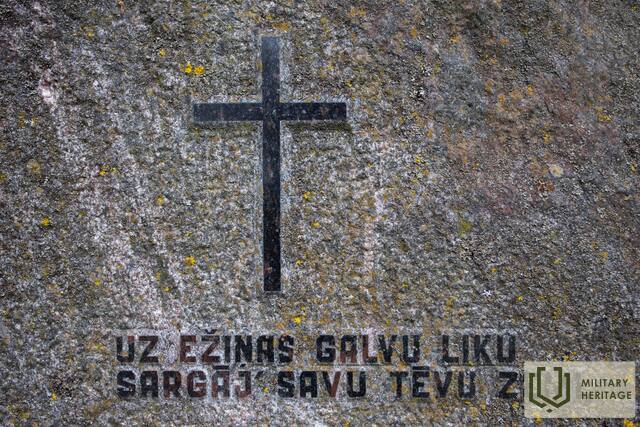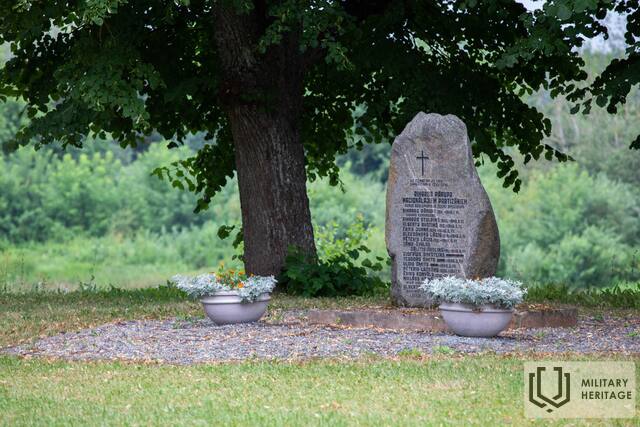Memorial stone to Rihards Pārups' national partisan group
Memorial site

 136
136


Located on Riga Street near the Krustpils Lutheran Church.
On September 22, 1996, a memorial stone was unveiled in Krustpils to Rihards Pārups and the national partisan group he led. The memorial stone was created by sculptor Ilgvars Mozulāns, and its creation was financially supported by the Speaker of the Saeima, Ilga Kreituse. This event was organized by the board of the Latvian National Partisan Association.
To the national partisans of Rihards Pārup,
who were murdered by a Cheka special group
Richard Parups (1914 – 2nd July 1946)
Group commander
Richard Stulpins (1923 – 1946. 2. VII)
Alberts Avotiņš (1912 – 2 July 1946)
Erik Juhna (1928 - 2 July 1946)
Aleksandrs Lācis (1919 – 2 July 1946)
Peter the Bear (1921 – 1946, 2nd July)
Jānis Ēvalds Zālītis (Āboliņš) (1911 – 1946, 2nd July)
Siegfried Bimstein, Theodore Schmidt (… – 2 July 1946)
Uldis Šmits (... - 1946. 2. VII)
Peter Lazdans (1926 – 1947)
Erik Konval (1929 – 1947. VI)
Niklāss Ošiņš (1908 – 12 October 1954) – executed in Riga
Alberts ħiķauka (1911 – 1972 II) – imprisoned in the Mordovian camp
Rihards Pārups was born on June 11, 1914 in “Kaķīši” of Krustpils parish. During World War II, he was a sergeant of the anti-tank division of the 15th Latvian division. He participated in national partisan operations in the Jēkabpils and Madona areas and was a member of the National Resistance Movement, the leader of a unit in the Jēkabpils and Madona areas. Rihards Pārups fell in battle with Cheka troops on July 2, 1946 in Vietalva parish. Unfortunately, the place of burial is unknown. A memorial plaque has been installed in the Riga Brothers' Cemetery. In the autumn of 1945, a national partisan group was formed in Jēkabpils district, led by R. Pārups. During its short existence, it participated in more than twenty armed clashes with units of the then Ministry of the Interior. The report of the Cheka Colonel Kotov to the Riga leadership states that the activities of the Soviet government in the Jēkabpils and Madona districts were effectively paralyzed during this time as a result of the group's activities. The national partisans led by R. Pārup found and destroyed several lists of deportations, thus saving the lives of many people. The leadership of the Security Committee, unable to destroy the national partisan unit in open battle, infiltrated it with four people from the Cheka special group, who shot ten partisans of the unit, including R. Pārup. In 1947, two more were shot near Jaunkalsnava, and in 1951 — one member of this unit. After twenty-five years of hard labor in a Mordovian camp, the fourteenth partisan of the group led by R. Pārup died a few days before liberation.
Used sources and references:
http://latvijaspieminekli.lv/pieminas-akmens-riharda-parupa-nacionalo-partizanu-grupai-krustpili/
Related timeline
Related stories
Selija's forest brother settlement in the Sūpe swamp
The Sūpes swamp is associated with the sites of national partisan settlements and battles, which were formed through the interaction of people and places. It is described in the ballad of the exiled Latvian writer Alberts Eglītis about the events in his native Sūpes swamp “In Moss and Mud” - a tribute to the Sūpes swamp partisans:
… “In 1945, as autumn glowed in the swamp -
On Pokļevinskis' birthday, Lieljānis shares at dinner:
Beer fermented in willows,
The Romulans worship butter,
I dry my mother's caraway bread,
Dried ham in March cuts,
And Stuchka's onions,
Ildzeniece cheese.
Rooms in resinous walls
And lightning has struck hearts,
And in eleven souls languish-
"The roots that have rotted in the ground..."
This interpretation of the past, with its post-World War II events, included human testimonies, expressions of spirit, and value systems. It recalls the popular support for the national partisans, whom the occupying power could not defeat so easily.




